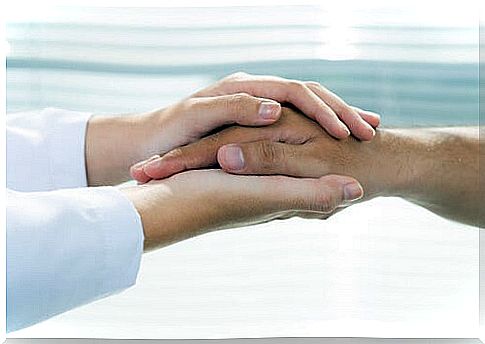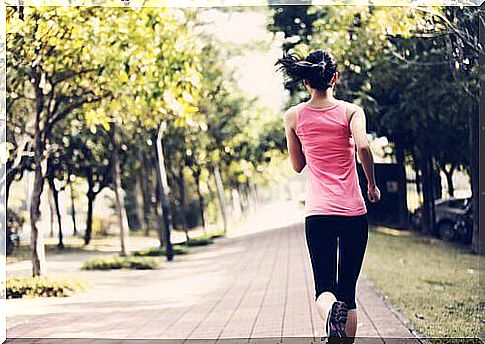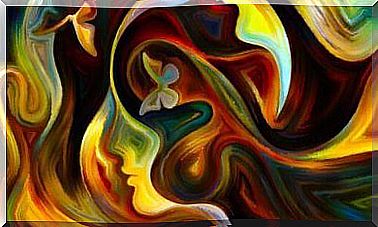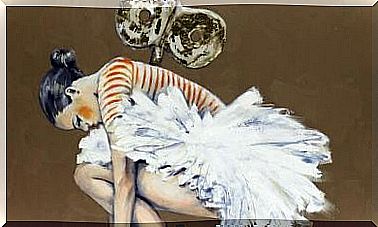Meditation And Other Non-pharmacological Interventions

If you are going through a period of crisis, there are several techniques and treatments that can improve your quality of life, whether you are sick or healthy. These techniques can be the perfect complement to pharmaceutical treatments when you’re sick, or simply give you a newfound zest for life. They all fall under the category of non-pharmacological interventions and include treatments such as meditation, reiki, music therapy, etc.
So let’s go on a little journey and define these treatments and the impact they have on our physical and mental well-being. In addition, we will define what exactly well-being means and how it differs from the concept of health.
What are non-pharmacological interventions?
Disease is traditionally approached from a pharmacological perspective. This means that crises, fear, misery and diseases are solved with pills. Fortunately, this way of thinking has evolved over the years, leading to today’s belief that pharmacological treatment is necessary in many cases, but not enough or optimal to improve the quality of life of patients. patient. As a countermovement, methods such as meditation are increasingly being used as a complement to pharmacological treatments.

It is important to consider how non-pharmacological interventions can affect a patient’s quality of life or perception of their own well-being, as well as their physical health through the impact these treatments have on the immune system. And on top of that, we should also inquire about their possible implementation in specific health centers and inclusion in current therapeutic programs.
Although research into these types of treatments is fairly new, Engel already expressed the need for a biopsychosocial medical model as early as 1977. In it, he proposed that biological, psychological and social aspects are all involved in general health.
What is well-being?
We can conceptualize well-being as a set of attitudes and behaviors that improve a person’s quality of life and help them achieve an optimal state of health (Donatelle, Snow & Wilcox, 1999). In other words, it is an active process aimed at improving one’s life in all areas.
This is where non-pharmacological interventions come in, as they allow the individual to take the lead in their own health. This can be achieved through healthy habits that come from the proper adaptation and integration of physical, mental, social, spiritual and emotional factors in any area of health or disease. Therefore , you can experience well-being both when you are healthy and when you are sick.

These findings are extremely important to clinicians as well as to the ordinary person, as they open up new avenues and the opportunity to use psychological treatments as a form of disease prevention.
How does stress affect us?
A person’s personality and emotional experiences influence their health and are an important link between illness and psychological stress. Psychological stress affects the immune response and the diseases associated with it.
Stressful situations, such as traumatic experiences and separation, can generate negative feelings such as depression, anxiety and hopelessness. These situations activate the central nervous system (CNS) and the autonomic nervous system (ANS) and produce changes in the reactivity of the immune response, which is a blow to the body’s defense mechanism.
Many strategies can be used to manage stress and several studies have been conducted on alternative therapies and treatments that minimize the effect of stress and increase people’s sense of well-being. These include music therapy, meditation, reiki, yoga, visualization, physical activity, psychotherapy, etc.

Get in touch with your inner self through meditation
do you meditate? Do you have doubts about the effectiveness of meditation? Would you like to know what research has been done on this? Before I answer these questions, I want to mention that there are plenty of other forms of treatment that I won’t mention here. For now I focus on reiki, music therapy, meditation, acupuncture and laughter therapy.
Today , Eastern practices such as meditation and yoga have become very popular. A study was conducted in which 86 patients with chronic disease were followed, all of whom followed an intervention program based on yoga, group discussions and information on stress management. The study showed a decrease in cortisol levels, an increase in beta-endorphin and a decrease in interleukin and tumor neurosis factor after ten days of intervention.
After interpreting the results of several studies, we can conclude the following:
- Non-pharmacological interventions show an increase in antibodies, which influence patient well-being, whether as the main intervention or as an adjunct to pharmacological treatment.
- It has also been shown that non-pharmacological interventions can reduce stress levels as a result of a decrease in cortisol levels
- But there are also limitations to this new field of research, and it is therefore important to look at the individual differences between patients and different types of diseases in order to properly apply these techniques. Therefore, there is still not much material to refer to when doing a new study.
- For this reason, the results of studies of non-pharmacological interventions can be confused with a placebo effect generated by the therapist’s positive expectations of the patient’s healing.
Finally, I would like to give you a link to a project that was carried out in the UK where playlists were created for people with dementia and Alzheimer’s as a new form of memory therapy:








